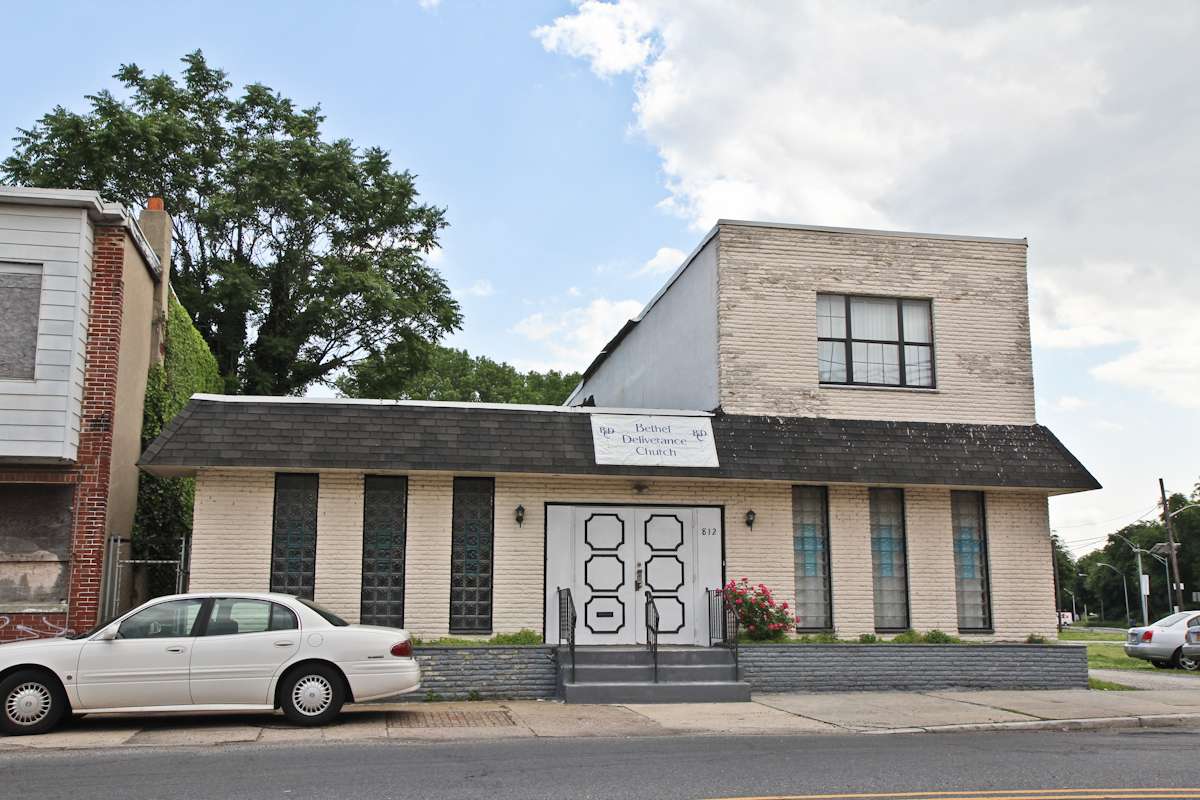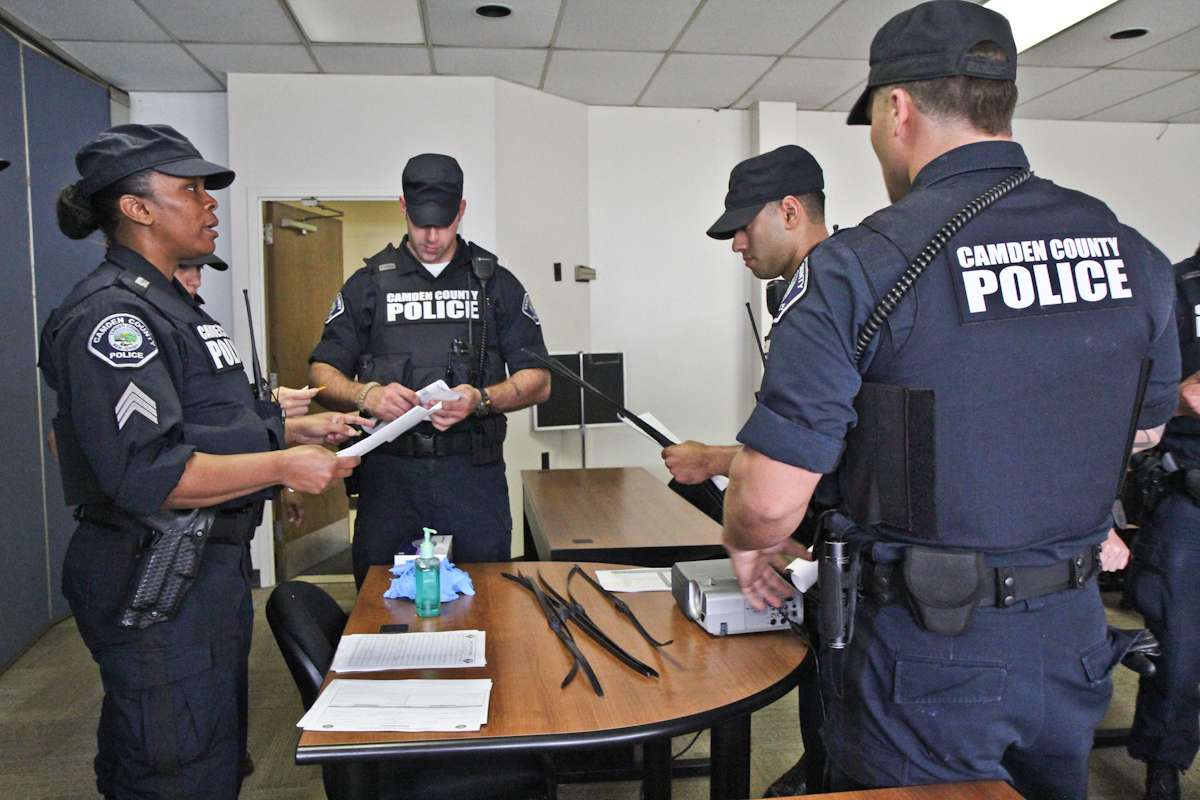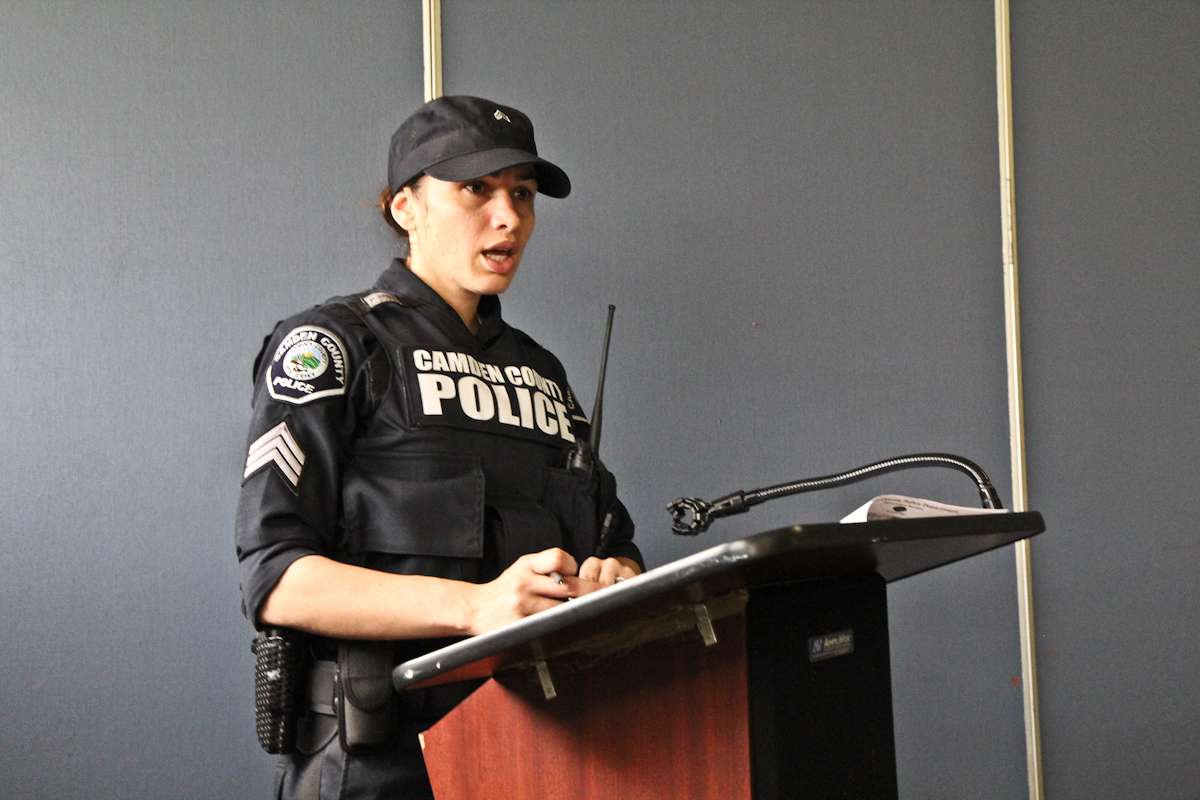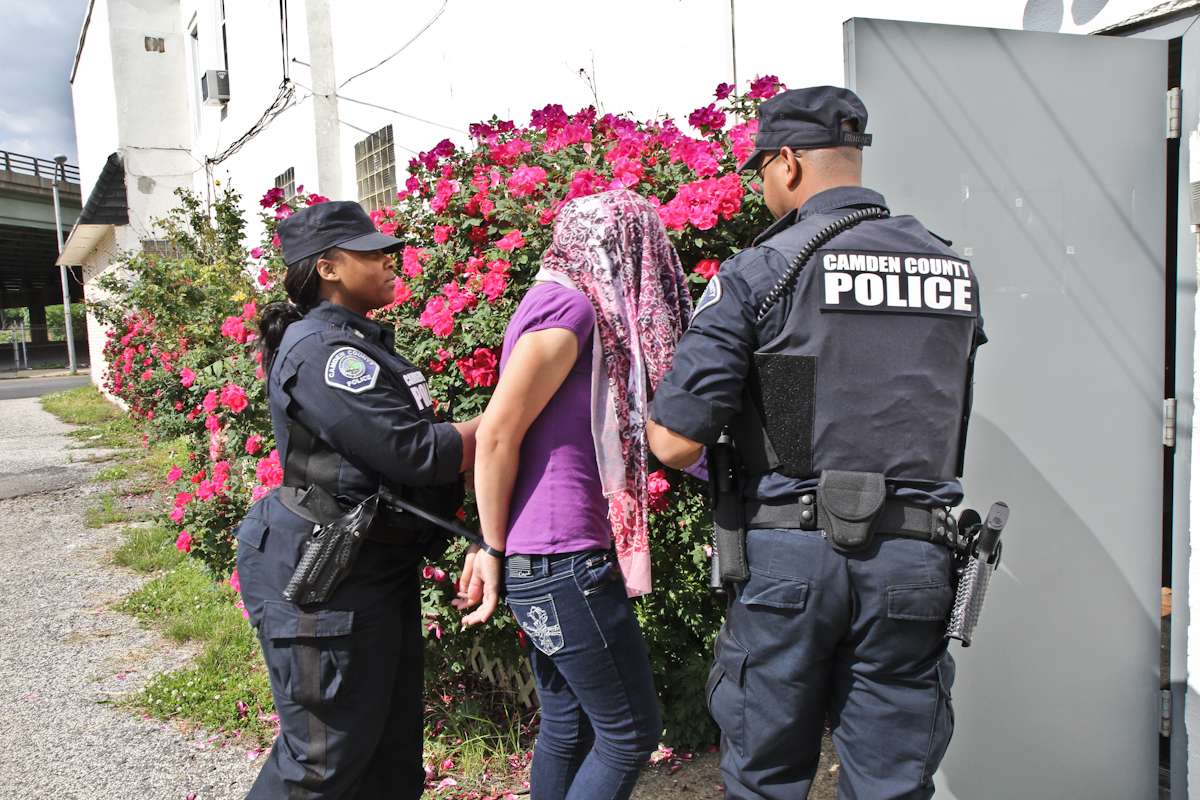While Camden arrests johns, it offers prostitutes a way out
ListenCrime in Camden, New Jersey, is down. Police have received national attention for their efforts to combat violence in the troubled city. But it’s not just homicides and shootings keeping law enforcement busy. Camden cops are also targeting another sort of crime that often goes on in plain sight: prostitution.
The effort includes some predictable players and others who are far from the norm. The latter category includes Brenda Antinore, who runs a ministry called She Has A Name. The ministry tries to help women who work Camden’s streets as prostitutes. She and her husband never expected to be collaborating with law enforcement because not that long ago police were targeting them.
“I never in my wildest dreams thought that we would be having the opportunity to do this,” she said.
In the mid-1990s, Antinore worked as a high school health teacher and her husband was a partner at a well-known law firm. They lived in an old, brick New Jersey farmhouse with their three young children. Then they were arrested for possession of more than 50 bags of crack cocaine.
Sitting in a new house she bought in Camden, Antinore described crack as “an equal opportunity destroyer.”
“The addiction will take you further than you ever thought you’d go, keep you longer than you ever thought you’d stay, and cost you more than you could ever imagine. We experienced that first-hand,” she said.
Antinore’s husband was disbarred and served time in federal prison. The couple spent years rebuilding their lives, and Antinore admits that some in her family would actually prefer she stay away from Camden — where the couple used to buy their drugs. Instead, she and her husband are moving in to this place they renovated in the Waterfront South neighborhood. She says they’ll live there and offer it as a safe space for prostitutes who work the city’s streets.
A compassionate approach
Antinore’s personal mission — to repay the kindness she was shown after her own downfall — takes her just outside the doors of her new house and onto Broadway Street.
These days, the Antinores are working with the Camden County Police Metro Division through a prostitution diversion program that brings law enforcement and social services surprisingly close together. It is based on a similar effort in Dallas.
After a prostitution bust, Camden police give women a choice: Go to jail or work with Antinore to get into detox to break their heroin or crack addiction.
Antinore says she approaches the women not as problems to be solved but as human beings.
“It doesn’t matter if they haven’t showered. It doesn’t matter the condition — what they look like. We believe that’s the part that has the ability to profoundly affect someone’s heart,” she said.
Police Chief Scott Thomson says partnerships with groups like She Has a Name give women arrested for prostitution the opportunity to get help and avoid prosecution.
“About 20 percent of the girls will accept this offer,” he said.
He says many of the women are trying to earn money as prostitutes to support their drug habits. So helping them get clean can be a more effective method of keeping them off the street than just arresting them.
This more compassionate approach for the women is in sharp contrast to law enforcement’s treatment of the men who are caught seeking their services. Thomson says his officers use everything they can to send a strong message to the johns, including seizing their vehicles. And they routinely use female police posing as prostitutes to catch would-be customers.
Sting operation
On one recent day, officers posing as prostitutes stand at a corner while their colleagues wait out of sight. Cars pass the women and sometimes slow down. The same car passes the same corner two, three, four times. The police wait to swoop in.
Two female officers sit in an unmarked car just feet from the undercover officers being used as bait to catch the johns. They keep both eyes trained on their colleagues.
The driver of a Lincoln Navigator looks like he’s trying to get the attention of a woman standing on the corner.
And then the police move in so quickly to make the arrest that the car dings repeatedly while the keys hang in the ignition. The perpetrator looks down at the ground speaking in Spanish. An officer talks to him and translates: “He says registration is in there. He has a Mexican license.”
Like the other men caught soliciting sex, he will be booked and his car impounded.
The criminal stage
While crimes that happen in this poor city are shrugged off by outsiders as Camden’s problems, Thomson estimates that close to 80 percent of the women working corners came from outside of Camden. And Brenda Antinore, from She Has A Name, adds that most of the customers are driving in from the suburbs.
In many cases, Camden is simply the stage on which the criminal behaviors play out.
While prostitution doesn’t result in bullets flying, Chief Thomson says part of making Camden a better place to live goes beyond just reducing homicides.
“When you have flagrant street walking and prostitution that takes place, it diminishes the quality of life in the neighborhood, and it can define a neighborhood,” he said. “If a broken window can be the start of the slippery slope of a neighborhood, you can imagine what flagrant street prostitution can do.”
Thomson says children shouldn’t have to walk past it on their way to school. And adults shouldn’t be face-to-face with prostitution every time they walk to the corner store.
WHYY is your source for fact-based, in-depth journalism and information. As a nonprofit organization, we rely on financial support from readers like you. Please give today.










